- Podium is a communication platform that allows businesses to interact with customers through text and email, record conversations, and send bulk messages.
- Users frequently mention the convenience of Podium's user-friendly interface, its ability to streamline business operations, and the benefit of having all customer interactions in one place.
- Users reported occasional glitches with the app, issues with the AI agent providing incorrect information, and difficulties in navigating through messages and finding specific conversations.
Best Automotive Marketing Software
Best Automotive Marketing Software At A Glance
G2 takes pride in showing unbiased reviews on user satisfaction in our ratings and reports. We do not allow paid placements in any of our ratings, rankings, or reports. Learn about our scoring methodologies.
- Overview
- Pros and Cons
- User Satisfaction
- Seller Details
Podium is an AI native communications platform that deploys AI Employees to help local businesses turn every conversation—text, call, or web chat—into revenue. Trusted by over 100,000 local businesses
- General Manager
- Owner
- Automotive
- Retail
- 60% Small-Business
- 35% Mid-Market
- Podium is a communication platform that allows businesses to interact with customers through text and email, record conversations, and send bulk messages.
- Users frequently mention the convenience of Podium's user-friendly interface, its ability to streamline business operations, and the benefit of having all customer interactions in one place.
- Users reported occasional glitches with the app, issues with the AI agent providing incorrect information, and difficulties in navigating through messages and finding specific conversations.
3,449 Twitter followers
- Overview
- Pros and Cons
- User Satisfaction
- Seller Details
Spyne is helping businesses create high-quality product visuals at scale with AI
- Automotive
- Photography
- 71% Small-Business
- 26% Mid-Market
6 Twitter followers
- Overview
- User Satisfaction
- Seller Details
With over 24 years of experience, Carsforsale.com is a leader in the online automotive industry, serving over 22,500 independent and franchise dealers in the U.S. We offer a suite of 35+ technology-d
- Automotive
- 88% Small-Business
- 12% Mid-Market
9,786 Twitter followers
- Overview
- User Satisfaction
- Seller Details
Experience the automotive industry leader in CRM. Sell more vehicles and drive profitability with the most powerful set of features in the market. Consolidate your customer intelligence in one system.
- Automotive
- 54% Mid-Market
- 40% Small-Business
9,521 Twitter followers
- Overview
- User Satisfaction
- Seller Details
Backed by unmatched expertise and unrivaled consumer behavior data, Dealer.com is the premier digital marketing solution and partner for the automotive industry. Providing an integrated platform of We
- Automotive
- 63% Mid-Market
- 23% Small-Business
11,493 Twitter followers
- Overview
- User Satisfaction
- Seller Details
Dealer Inspire provides responsive design, schema, snippets, conversion rate optimization and ROI tracking.
- Automotive
- 45% Mid-Market
- 27% Enterprise
- Overview
- User Satisfaction
- Seller Details
Dabadu XRM is your all-in-one automotive command center—CRM, equity mining, digital retailing, and more—finally built to work as one. No more bouncing between tools. No lag. Just faster deals, better
- Finance Manager
- Product Specialist
- Automotive
- 75% Mid-Market
- 18% Small-Business
13 Twitter followers
- Overview
- User Satisfaction
- Seller Details
CDK CRM exists to help dealers convert leads into sales, prospects into customers, and customers into trusted long-lasting and rewarding relationships. As pioneers in automotive CRM, we offer a soph
- Automotive
- 58% Mid-Market
- 24% Small-Business
6,465 Twitter followers
- Overview
- Pros and Cons
- User Satisfaction
- Seller Details
We’re a marketing technology company on a mission to help brands drive results on the local level by transforming their partner ecosystems. Helping companies orchestrate brand-to-local growth at scale
- Travel Advisor
- Marketing Manager
- Leisure, Travel & Tourism
- Marketing and Advertising
- 60% Small-Business
- 22% Mid-Market
672 Twitter followers
- Overview
- User Satisfaction
- Seller Details
Welcome to the future of Marketing & Automation. Matador helps businesses create a personalized and engaging conversational experience for every customer interaction throughout the buying journey
- General Manager
- Automotive
- 64% Small-Business
- 27% Mid-Market
15 Twitter followers
- Overview
- User Satisfaction
- Seller Details
AutoAlert is a data mining & lead generation software tool for automotive dealerships.
- Automotive
- 50% Mid-Market
- 40% Small-Business
1,788 Twitter followers
- Overview
- User Satisfaction
- Seller Details
PureCars is a leading Automotive Software and Managed Services Company serving Dealerships, Advertising Associations, and OEMs across the North American retail automotive industry. Our software and se
- Automotive
- 36% Mid-Market
- 36% Small-Business
1,448 Twitter followers
- Overview
- User Satisfaction
- Seller Details
Steer offers a full suite of CRM tools for independent and multi-location repair shops. With features like text and email reminders, an easy-to-use online appointment scheduler, and reputation managem
- Automotive
- 71% Small-Business
- 24% Enterprise
- Overview
- User Satisfaction
- Seller Details
Composer is a next-gen automotive platform that has been designed from the ground up to give you an intuitive way to promote your stock. You have extensive stock management options, and you'll gain a
- Information Technology and Services
- 42% Enterprise
- 42% Mid-Market
- Overview
- User Satisfaction
- Seller Details
Car Portal is a customizable PHP web software for running multi-user auto classified portal websites.
- Automotive
- 67% Small-Business
- 24% Mid-Market
260 Twitter followers
- Overview
- User Satisfaction
- Seller Details
Driftrock is an Automotive Marketing platform that drives more high quality leads and vehicle sales from your marketing campaigns. Driftrock enabled +$270M of New Vehicle Sales in the last 12 months.
- Marketing and Advertising
- 46% Small-Business
- 31% Mid-Market
3,416 Twitter followers
- Overview
- User Satisfaction
- Seller Details
Craigslist Posting Manager allows you to post your inventory on Craigslist with the ability to have customized posts, repost ads and post when you want.
- 62% Small-Business
- 31% Mid-Market
314 Twitter followers
- Overview
- User Satisfaction
- Seller Details
More than just a website. Friday Systems’ dealer sites include Inventory Management, SEO integration, Lead Notifications and run on WordPress. Priced to Compete.
- 79% Small-Business
- 14% Mid-Market
- Overview
- User Satisfaction
- Seller Details
Campaign 365 has been designed to simplify and automate all direct marketing, reducing the administration overhead involved in carrying out regular campaigns.
- 50% Mid-Market
- 33% Enterprise
623 Twitter followers
- Overview
- User Satisfaction
- Seller Details
Impel offers automotive dealers, wholesalers, OEMs and third-party marketplaces the industry’s most advanced digital engagement platform. The company’s end-to-end omnichannel solution leverages propri
- Automotive
- 64% Mid-Market
- 21% Small-Business
1,250 Twitter followers
- Overview
- User Satisfaction
- Seller Details
Dealer Car Search is a comprehensive suite of products for car dealerships, from CRM system and website builder toinventory and reputation management.
- Automotive
- 75% Mid-Market
- 67% Small-Business
4,636 Twitter followers
- Overview
- User Satisfaction
- Seller Details
Upstart Auto Retail combines online and in-store digital retail capabilities with financing and manager tools to help you create an omni-channel car buying experience. Upstart Auto Retail | Online:
- Automotive
- 50% Small-Business
- 44% Mid-Market
18,736 Twitter followers
- Overview
- User Satisfaction
- Seller Details
The conversational commerce platform designed for dealers.
- Automotive
- 82% Mid-Market
- 9% Enterprise
813 Twitter followers
- Overview
- User Satisfaction
- Seller Details
ZopDealer is an all-in-one solution to manage your Inventory, leads, and website.
- 71% Mid-Market
- 29% Small-Business
13 Twitter followers
- Overview
- User Satisfaction
- Seller Details
Convertus offers digital marketing solutions for Canadian automobile dealerships.
- 60% Small-Business
- 20% Enterprise
- Overview
- User Satisfaction
- Seller Details
DIY Facebook Advertising Tools for Advanced Marketers
- 80% Small-Business
- 20% Mid-Market
3,350 Twitter followers
- Overview
- User Satisfaction
- Seller Details
Bluesky Interactive offers car websites and automobile marketing solutions.
- 50% Mid-Market
- 50% Small-Business
1,580 Twitter followers
- Overview
- User Satisfaction
- Seller Details
eBizAutos is a leading provider of Automotive Internet Marketing, Dealer Websites, and Dealer Marketing Software for the automotive industry
- 75% Small-Business
- 25% Enterprise
683 Twitter followers
- Overview
- User Satisfaction
- Seller Details
Motoshop provides diagnostics, shop management and shop marketing solutions to automotive shops.
- 60% Small-Business
- 40% Enterprise
- Overview
- User Satisfaction
- Seller Details
Shift Marketing Automotive is a database marketing technology company. Through the Shift One platform, Shift helps auto dealers and manufacturers sell cars to CRM customers through loyalty marketing e
- 50% Enterprise
- 25% Mid-Market
752 Twitter followers
- Overview
- User Satisfaction
- Seller Details
Wrap Shop is a quoting and booking system for the automotive restyling and customisation industry.
- 50% Mid-Market
- 50% Small-Business
1,099 Twitter followers
- Overview
- User Satisfaction
- Seller Details
Carbase makes it easy for you to upload and manage your new and used auto inventory to your website.
- 67% Mid-Market
- 33% Small-Business
423 Twitter followers
- Overview
- User Satisfaction
- Seller Details
Fullpath empowers local dealerships to win their market with the most advanced machine learning. The technology automates every step of the dealership’s marketing funnel-- from traffic acquisition to
- 100% Mid-Market
- Overview
- User Satisfaction
- Seller Details
PHP Auto Dealer will allow you to set up an automated online showroom of your vehicle inventory that is maintainable from any web browser via the admin interface with no coding or FTP required.
- 75% Small-Business
- 25% Enterprise
- Overview
- User Satisfaction
- Seller Details
ActivEngage has helped generate more than $15 billion in automotive sales and is one of the most award-winning automotive digital services companies. In 2007, ActivEngage revolutionized the automotive
- 50% Enterprise
- 50% Mid-Market
2,621 Twitter followers
- Overview
- User Satisfaction
- Seller Details
Reputation Accelerator lets you automate the invite process and collect more reviews to accelerate your dealerships' success along with its online reputation.
- 50% Enterprise
- 50% Small-Business
3,350 Twitter followers
- Overview
- User Satisfaction
- Seller Details
RevolutionParts is an enterprise-grade eCommerce platform that powers over $200M in OEM parts and accessories sales online every year. We make it easy for dealerships to profitably sell auto parts onl
- 33% Enterprise
- 33% Mid-Market
430 Twitter followers
- Overview
- User Satisfaction
- Seller Details
String helps dealers to unlock their data and uncover actionable insights that improve sales, marketing and service performance.
- 100% Mid-Market
- Overview
- User Satisfaction
- Seller Details
AAN provides car dealers with website design, search engine optimization, web based applications, and internet-based management system.
- 100% Small-Business
- Overview
- User Satisfaction
- Seller Details
Car Wars is the trusted phone solution for top automotive dealers, helping Sales and Service teams boost performance, eliminate missed opportunities, and drive more revenue from the phone. With over 3
- Automotive
- 55% Small-Business
- 27% Enterprise
- Overview
- User Satisfaction
- Seller Details
EpicVIN is an online service providing comprehensive vehicle history reports. Established in 2012, EpicVIN aims to diminish uncertainty and fraud within the automotive sector by offering prospective b
- 100% Small-Business
- Overview
- User Satisfaction
- Seller Details
Turn Your Dealership Website into a Conversion Machine.
- 100% Small-Business
- Overview
- User Satisfaction
- Seller Details
AutoBG is a cutting-edge SaaS platform designed to instantly enhance your automotive visuals. Powered by advanced AI, AutoBG automatically removes cluttered backgrounds and replaces them with professi
- Overview
- User Satisfaction
- Seller Details
- Overview
- User Satisfaction
- Seller Details
BluSolutions is an automotive dealer website and SEO solution offering internet marketing solutions to automotive dealers.
245 Twitter followers
- Overview
- User Satisfaction
- Seller Details
Build-A-Brand offers an all-in-one branding platform designed to empower your sales team and keep them top-of-mind for customers ready to purchase a vehicle. Our mission is to help your dealership out
- Overview
- User Satisfaction
- Seller Details
Capora is an AI-driven transportation management solution developed by 42dot, designed to revolutionize logistics operations by automating and streamlining various tasks. It offers a comprehensive sui
- Overview
- User Satisfaction
- Seller Details
Cartelux empowers automotive companies. It’s an intuitive platform that unlocks teams to create, amplify and measure digital campaigns at the highest professional level. Of course, no two retail netwo
- Overview
- User Satisfaction
- Seller Details
Cinch is a marketing automation platform—built on an enterprise-level customer data platform. Why does that matter? Because the success of your marketing communications rests on the power of your cust
- 100% Small-Business
- Overview
- User Satisfaction
- Seller Details
Our AI-powered marketing solutions are designed to help dealers sell more cars. See how we can help you conquest new and retain existing customers.
- Overview
- User Satisfaction
- Seller Details
Cruise, a subsidiary of General Motors (GM), is at the forefront of developing autonomous vehicle technology aimed at transforming transportation into a safer, cleaner, and more accessible experience.
- Overview
- User Satisfaction
- Seller Details
DC Connected is an innovative company specializing in digital vehicle diagnostics and AI-driven mobility solutions. Founded on January 14, 2021, and headquartered in Nersingen near Ulm, Germany, the c
- Overview
- User Satisfaction
- Seller Details
DealerBeats’ car dealer software is a one-stop solution to all the dealership challenges. DealerBeats equips car dealers with tools and features that enable them tackle several day to day challenges h
- Overview
- User Satisfaction
- Seller Details
Dealr.cloud is an all-in-one dealership management platform for all independent automotive dealerships. It provides advanced and progressive technology to help support and automate daily challenges de
- Overview
- User Satisfaction
- Seller Details
Streamline and automate responses to online leads, increase the visibility of your dealership’s promotions and deliver customer experiences that simply sell more cars. Thousands of dealerships trust R
5,224 Twitter followers
- Overview
- User Satisfaction
- Seller Details
Envision by Core Dealer Services is an Opportunity Mining Tool and communications platform created by automotive industry professionals. Leveraging dealer management system data combined with various
- Overview
- User Satisfaction
- Seller Details
Since its launch in 2010 Gemini Systems eVHC software has matured in to an advanced, dependable, industry leading eVHC solution. A keen focus on usability has ensured that the application is fast and
623 Twitter followers
- Overview
- User Satisfaction
- Seller Details
Hi Auto is a service provider of conversational AI solutions tailored for the quick-service restaurant (QSR) industry, specializing in automating drive-thru order taking. Their advanced AI platform en
- Overview
- User Satisfaction
- Seller Details
izmocars is a leading provider of cutting-edge software solutions for the automotive industry. Our innovative platforms include izmoauto - Digital Web Platform for Automotive Dealers, izmoemporio - Di
1,191 Twitter followers
- Overview
- User Satisfaction
- Seller Details
DEALER WEBSITES CAR SHOPPERS LOVE Get a website that earns you loyalty and sells cars
- Overview
- User Satisfaction
- Seller Details
MotorDesk is a web-based automotive dealership management platform designed to modernise your stock management, advertising, communication, sales, social media & website. MotorDesk provides you w
- Overview
- User Satisfaction
- Seller Details
Customer experience (CX) middleware that powers the automotive industry with analytics, data, and automation solutions.
- 100% Mid-Market
- Overview
- User Satisfaction
- Seller Details
Outsell makes dealers lives easier with AI-driven, automated marketing communications across channels
- 100% Small-Business
1,250 Twitter followers
- Overview
- Pros and Cons
- User Satisfaction
- Seller Details
Dealer Management System designed specifically for Windows.
- 83% Small-Business
- 17% Mid-Market
329 Twitter followers
- Overview
- User Satisfaction
- Seller Details
Phyron is the fully automated video advertising platform for car dealers. We transform existing car inventory data and photos into AI-enhanced images and engaging videos. Zero manual work required. O
2 Twitter followers
- Overview
- User Satisfaction
- Seller Details
Potential Motors is a Canadian automotive technology company specializing in AI-driven solutions that enhance vehicle performance and safety across diverse terrains. Their flagship technologies, Terra
- Overview
- User Satisfaction
- Seller Details
42dot's Software-Defined Vehicle (SDV) is an innovative automotive platform that transforms traditional vehicles into intelligent, connected systems, ensuring continuous updates and enhanced safety. B
- Overview
- User Satisfaction
- Seller Details
Auto Dealership Websites Take the chaos out of online car sales. Space Auto dealership websites are clutter-free and easy to navigate. They’re designed to connect with customers and convert without th
- Overview
- User Satisfaction
- Seller Details
STELLA™ Service is an advanced AI-driven voice assistant designed to revolutionize automotive service departments by automating the service booking process. Operating 24/7, STELLA Service answers call
- Overview
- User Satisfaction
- Seller Details
All-in-One Automotive Customer Experience Solution VenueVision delivers a powerful suite of tools designed to enhance customer communication and streamline operations for automotive businesses. From
Learn More About Automotive Marketing Software
What is Automotive Marketing Software?
Automotive marketing software provides car dealerships the tools they need to market their inventory and services and grow their customer base. These solutions help dealerships build and deploy an omnichannel strategy that delivers personalized experiences to potential customers and increases sales. Users can list inventory (new cars, used cars, or car parts) on their sites, create and distribute marketing materials, automate certain marketing and sales workflows, and track ROI for each campaign.
By properly utilizing automotive marketing software, dealerships can target the right prospect at the right time, offer competitive pricing, and ultimately grow their sales pipeline. While dealerships can also use non-verticalized marketing solutions, specialized automotive marketing products offer industry integrations with other automotive software solutions and can connect data from multiple dealership tools into a centralized system for optimal marketing success.
What are the Common Features of Automotive Marketing Software?
The following are some core features within automotive marketing software that can help users execute lead generation and marketing campaigns:
Lead management and nurturing automation: With lead management and nurturing automation, sales teams can automate the process of acquiring and qualifying leads based on which are most likely to convert. This is particularly useful for sales teams, as users can set parameters for what constitutes a qualified lead. This may be when prospective customers visit a product page three times or when they only come once. Users get to decide when the automation tool triggers a sales notification that will alert sales reps to reach out to qualified leads and close a sale. This tool saves sales reps time by focusing on only the most qualified leads.
Website listings: Automotive marketing products should offer some degree of dealer website listing support, allowing users to post vehicles and parts inventory online. These listings can also be shared via other channels. With pricing automation, dealerships can automatically drop or raise prices in real time based on interest or repeated product page visits.
SMS marketing: Text messaging allows salespeople to reach customers on their mobile devices and often leads to quicker response times. Reminders and notifications can be automatically sent out, integrating with calendars to lock in event invites. Automotive marketing platforms can also handle bulk messaging, allowing for targeted customer engagement based on selected criteria.
Email marketing: Similar to SMS marketing capabilities, automotive marketing software allows dynamic email marketing campaigns to be designed and executed. For example, once a customer signs up for an auto dealer’s mailing list, marketing automation takes over and can start sending out email marketing campaigns based on events, online activities, and lead scores.
Social media marketing: Digital marketing strategies are crucial to success in today’s sales environment. Automotive marketing platforms can reach prospects via multiple social platforms, including Facebook, Instagram, and Twitter. Leads can be captured and fed into the system, with personalized content and ads being pushed out at the right time.
Reputation management: Once a sale has been made, dealerships can send out surveys and requests for reviews to customers via their preferred channel. Automatic prompts can be generated to direct customers to leave a review on any designated site and can help nurture customer relationships to drive repeat business.
Workflow automation: Marketing and sales workflows can be automated to remove a lot of tedious work throughout the customer journey, allowing reminders, special offers, and follow-up messages to be automatically sent out to prospects and customers. For customers leasing cars, renewal reminders can also be set up to trigger at specific times. If integrated with a CRM, automotive marketing software can also assist with scheduling phone calls for added outreach.
Marketing analytics: Conversational and campaign analytics help sales and marketing teams assess the effectiveness of their outreach. This can help determine which channels are most effective with specific demographics, how marketing efforts impact car sales, and how salespeople perform against quotas.
What are the Benefits of Automotive Marketing Software?
Maximize engagement: By utilizing omnichannel marketing tools and having access to various lead signals, dealership salespeople can nurture prospects throughout the pipeline and ensure no engagement opportunities are missed. Automation tools free up sales and marketers to focus on actions that drive higher engagement and promote sales optimization.
Improve sales: Campaign analytics and personalization tools enable dealerships to target prospects and customers at the right time to close deals or secure repeat business. Resources can be allocated based on which campaigns are performing better, and sales teams have access to quality data that supports conversations.
Who Uses Automotive Marketing Software?
Sales teams: Automotive marketing software helps sales teams leverage marketing data to identify qualified leads, analyze customer sentiment, and establish better communication with customers. When sales teams understand what leads have expressed a major interest in the product, they can reach out to customers based on actual data and turn cold calls into warm calls. With marketing automation data, sales teams can also be notified when the best time is to reach out to their leads. If leads are on a pricing page, this can trigger an alert to a sales rep to reach out to that lead and talk them through the product offering.
Marketing teams: Marketing teams use automotive marketing software to automate tedious tasks, organize workflows, and collect customer data. By automating marketing tasks like email marketing, lead generation, and digital advertising, marketing teams save time and can focus more on analyzing their data. Spending more time with this data results in a more effective marketing strategy.
What are the Alternatives to Automotive Marketing Software?
While automotive marketing software has the added benefit of specific integrations for dealerships, horizontal alternatives to automotive marketing software can replace this type of software, either partially or completely:
SMS marketing software: SMS marketing point solutions can be deployed alongside automotive marketing software if a certain platform does not provide the necessary features. This software supports text campaigns and can deploy personalized texts at the right time to the right people.
Email marketing software: Some automotive marketing software products specialize in SMS marketing and may not offer comprehensive email marketing tools. Dealerships may choose to use a separate solution specifically for email marketing if they need more functionality.
Sales engagement software: Sales engagement software provides a central hub for all communications sales teams send to prospective customers and can provide scripts and templates for different outreach activities. Dealerships may use these tools along with automotive marketing software if greater sales automation and lead nurturing are needed.
Software Related to Automotive Marketing Software
Related solutions that can be used together with automotive marketing software include:
Car dealer software: Car dealer software, also known as dealer management systems (DMS), provide all-in-one business management support for auto dealers. Automotive marketing software integrates with these solutions to drive sales and supplement additional customer data stored in a DMS.
CRM software: For auto dealerships not using a DMS or related automotive industry tool, a standard CRM may be used alongside automotive marketing software to support lead management and customer relationship management efforts.
Automotive digital retailing software: Automotive digital retailing software allows dealerships to digitize their inventory and allow customers to complete a deal online, from start to finish. While automotive marketing software may integrate with websites and provide general listing features, not all products offer enough functionality to operationalize a dealership’s e-commerce strategy. Automotive marketing should be used alongside this type of platform.
How to Buy Automotive Marketing Software
Requirements Gathering (RFI/RFP) for Automotive Marketing Software
Whether a company is just starting to explore automotive marketing software or is looking for a more appropriate solution for their needs, G2.com can help inform buyers of the market and assist them in selecting the best software product for their business.
Dealerships looking to purchase automotive marketing software, whether for the first time or to replace an existing solution, should first determine that they can use the platform. If they don’t have a dedicated marketing team, for example, or their sales team uses other solutions already, trying to implement an automotive marketing platform may not be successful. Advanced engagement tools and automation may be wasted if the target customer does not make use of certain channels, too.
Compare Automotive Marketing Software Products
Create a long list
The first step to finding the perfect software solution is to create a preliminary list of products that fit the buyer’s general needs. The next step is to narrow down the list by selecting specific features that are must-haves or requirements for the buyer. G2.com provides information about the best automotive marketing software, allowing buyers to filter options and user reviews to help narrow the product list to a more relevant selection.
Create a short list
Creating a short list of software products is an important step in the buying process. While it may be daunting to filter through various products, users can get help by utilizing G2’s compare feature. This feature will take products of choice and display them side by side so the buyer can easily determine which software ticks the important boxes on the list.
Conduct demos
Once the buyer has narrowed down the product list, the next step is to conduct a demo. Demos allow buyers to see a product and its features in more detail. To ensure a buyer gets the most out of a demo, it’s important to go in prepared. Buyers should be prepared to thoroughly test each product from a user and customer standpoint. Determine what goes into creating different types of marketing campaigns via each product. Additionally, buyers should inquire about cost, integrations, vendor support, and any concerns they have about the product. Adequate preparation will make it easier for a buyer to compare products after completing the demos.
Selection of Automotive Marketing Software
Choose a selection team
The selection team will likely include dealership sales and marketing staff, such as account managers and marketing managers. They will represent the interests of their respective teams and understand what features are necessary to support their day-to-day functions.
Negotiation
Once the selection team has narrowed down their software picks, it’s time to discuss customization options, pricing, and the type of support needed from the vendor. It’s always important to address pricing options, even when they are listed on a vendor’s website. Many software vendors will provide discounts and custom pricing options based on what the buyer is looking to purchase.
Final decision
Once a buyer has made the final decision on a product and is ready to move forward with a purchase, it is recommended to conduct a final demo, inquire about a trial run, and determine the next steps if the product doesn’t ultimately fit their needs. These steps can give a buyer an additional sense of security and confidence when making a final decision.























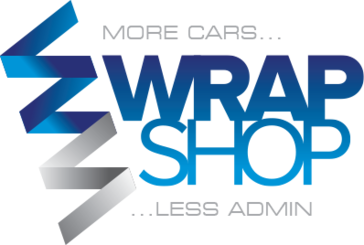







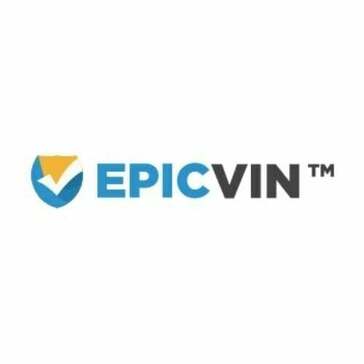

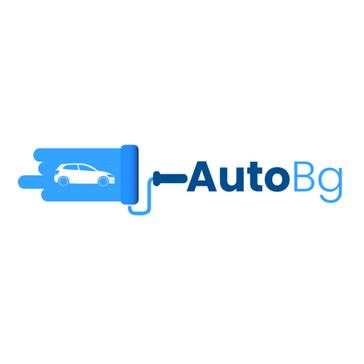








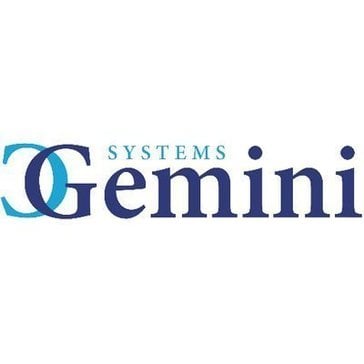







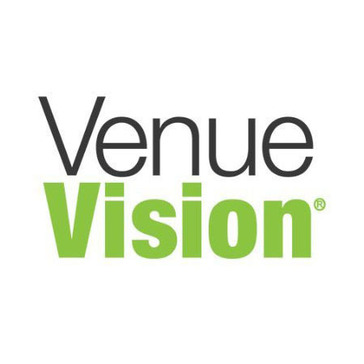
DIY Facebook Advertising Tools for Advanced Marketers